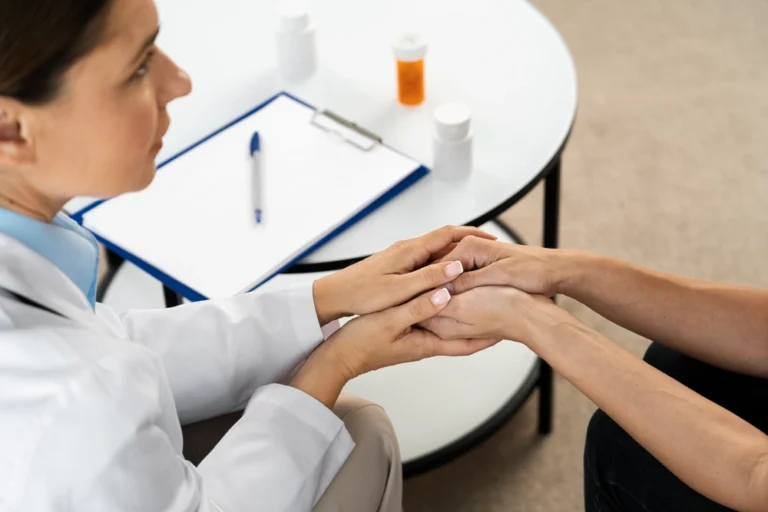Ibogaine is a psychoactive alkaloid derived from the roots of the African plant iboga, in recent years has captured attention as a potential treatment for addictive problems. In this text, a detailed comment was made on the positive and negative aspects of ibogaine treatment, supported by current medical-scientific evidence.
To talk about the pros of treatment with ibogaine it is worth highlighting the possibility of interruption of addictive patterns, numerous reports of experts and some clinical studies indicate that ibogain can interrupt addiction pattern, especially in cases of opioid dependence, when talking about opioids we are making reference to heroin, fentanyl, tramadol among others; A reduction in abstinence symptoms and desires for consumption has been observed.
Ibogaine is known to induce intense psychedelic experiences. Patients often report deep introspective travel, which can lead to reflection and significant changes in the perception of addiction and life in general, such effects can be beneficial under strict medical supervision.
There is also young scientific evidence that relates ibogaine to positive effects around the emotional frames, it has been observed that ibogain interacts with serotonin receptors in the brain.
Preliminary research suggests that ibogaine can influence several neurochemical systems, including the modulation of dopamine and serotonin receptors. These effects may be related to its potential antidepressant and anxiolytic properties.
Serotonin is a key neurotransmitter involved in regulating mood, anxiety and other aspects of emotional well-being. The ability of ibogaine to modulate the activity of these receptors suggests a possible impact on mood disorders.
By influencing serotonin receptors, ibogaine has been established to have antidepressant effects. Although accurate understanding of these effects and their mechanisms is still under development, serotoninergic system modulation is a key component of many conventional antidepressant interventions.
Some researchers have suggested that ibogaine may have a unique mechanism of action compared to conventional antidepressants. While selective serotonin recapture inhibitors (SSRIs) and other antidepressants act by increasing the availability of serotonine in the synaptic space, ibogaine can directly modulate serotonin receptors.
Ibogaine not only addresses the physical symptoms of addiction, it has also been proposed as a holistic approach that can have emotional and spiritual impacts, helping individuals address the underlying roots of their addiction.
Like all new medicines for treatment of conditions, there are a number of drawbacks and challenges of treatment with ibogaine.
One of the main disadvantages of ibogaine is its association with heart risks, including heart rhythm disorders, specifically ibogain has the potential to cause a heart disorder called Torsade de Pointes, this is a ventricular tachycardia that can degenerate into sudden death. This has led to the need for strict medical monitoring during and after treatment.
Ibogaine often causes nausea and vomiting, which can be intense. These gastrointestinal side effects can contribute to dehydration and loss of serum electrolytes, some people experience ataxia, which manifests as difficulties in motor coordination and balance. This can increase the risk of falls and injuries, and can also induce states of confusion and disorientation.
Perceptive and cognitive disturbances are common during the psychedelic experience associated with ibogaine, and psychedelical experiences induced by ibogain can be intense and distressing. Individuals may face traumatic memories or experience intense emotions during acute intoxication scenes.
Unlike some shorter psychedelic substances, the effects of ibogaine can last for hours, and the full experience can extend over a day or more. This can increase fatigue and discomfort.
Ibogaine may interact with other medicines. It is crucial to inform health professionals about any medication you are taking before considering treatment with ibogaine.
In some cases, ibogaine has been associated with the exacerbation of pre-existing psychiatric conditions, such as psychotic disorders. It is worth noting that managing out of medical-psychiatric supervision can be the trigger of mental health disorders including schizophrenia.
Although there are promising reports, the amount of high-quality scientific evidence on the effectiveness and safety of ibogaine is still limited. More controlled clinical trials are needed to validate its therapeutic benefits. Many of the available studies have a limited number of patients to evaluate, similarly the follow-up is limited, while the response to ibogaine can vary significantly from individual to individual. Factors such as heart health, medical history and pre-existing conditions can influence the safety and effectiveness of treatment.
Ibogaine is subject to legal regulations in many countries, making it difficult to access. Legal restrictions pose challenges for those seeking treatment and for scientific research. In Mexico it is not regulated, there are a good number of legal gaps around many medicines with potential for medical treatment.
Ibogaine treatment presents an intriguing balance between therapeutic promises and significant challenges. As its potential benefits in interrupting addiction and emotional well-being are explored, the scientific and medical community must carefully address the associated risks and work towards a more comprehensive understanding of its safety and effectiveness. The future of ibogaine as a therapeutic tool will require a comprehensive approach, from rigorous research to ethical consideration and appropriate policy development.
At OCEANICA we have cutting-edge pharmacological methods, we are continuously analysing new treatment options that provide timely and effective relief to various mental health conditions, all our treatment offerings met with an analysis validated by experts in the area. We are currently reviewing new alternatives. Ibogaine has enormous potential, yet there is still a good number of research to be done to openly define its effectiveness.











